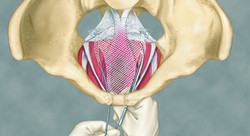The vaginal Mesh website discusses a recent study that suggests the transvaginal mesh device is not beneficial in vaginal prolapse repair. “
 Findings in a recently published study suggest the transvaginal mesh is not beneficial for the repair of vaginal prolapse. The results of the study, which was conducted by Robert E. Gutman, MD, from Georgetown University in Washington, DC, and peers, appeared in the September 6th online version of Obstetrics & Gynecology.
Findings in a recently published study suggest the transvaginal mesh is not beneficial for the repair of vaginal prolapse. The results of the study, which was conducted by Robert E. Gutman, MD, from Georgetown University in Washington, DC, and peers, appeared in the September 6th online version of Obstetrics & Gynecology.
According to the researchers’ findings no difference was found in cure rates for women with or without the use of the mesh device among the 65 study participants. The authors are quoted in a HealthDay News report stating, “There was no difference in three-year cure rates when comparing patients undergoing traditional vaginal prolapse surgery without mesh with those undergoing vaginal colpopexy repair with mesh.”
Once approved by the FDA, transvaginal mesh devices have been the subject of a widespread warning due to complaints of injuries sustained by thousands of women since being introduced into the market. In addition to mesh erosion, pelvic pain, painful intercourse, incontinence, chronic infection, organ perforation, bleeding, and other symptoms associated with mesh failure, many female patients have been required to undergo additional surgeries in an attempt to remove an eroded device.
The Life Care Solutions Group has opened a helpline for women who have sustained transvaginal mesh injuries. The group offers free evaluations for those seeking to assess their medical and legal options in the event that they have had signs of mesh failure after having the device implanted. For women who have undergone the procedure and have not noticed related symptoms but still have questions or concerns, the group can offer information that may help with their concerns.
Individuals may contact Vaginal Mesh help desk and discuss vaginal mesh lawsuit options for more information on how to receive help.
Social Media Tags: Repairing Vaginal Prolapse, Mesh, TVM






